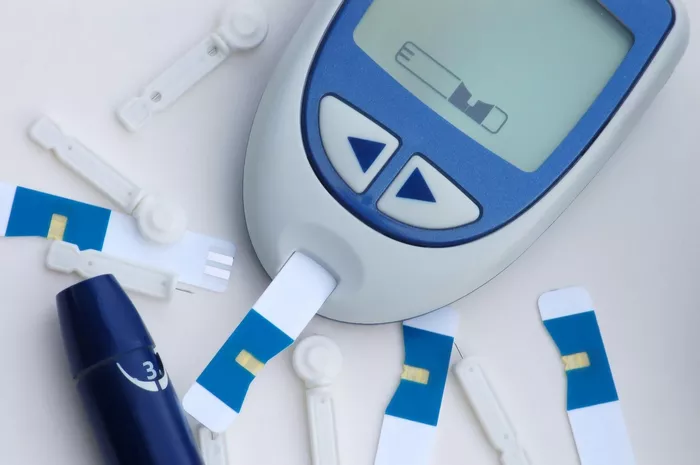Hyperglycemia, or high blood glucose, is a prevalent condition in individuals with diabetes and can have significant health implications if not managed properly. This comprehensive article delves into the definition of hyperglycemia, the blood glucose levels that constitute this condition, its causes, symptoms, complications, and strategies for effective management.
What Blood Glucose Level is Hyperglycemia?
Hyperglycemia is typically defined as a condition where blood glucose levels exceed the normal range. For individuals without diabetes, normal blood glucose levels are typically between 70 to 99 mg/dL (3.9 to 5.5 mmol/L) when fasting, and less than 140 mg/dL (7.8 mmol/L) two hours after eating. In people with diabetes, hyperglycemia is generally diagnosed when fasting blood glucose levels are above 126 mg/dL (7.0 mmol/L) or when non-fasting blood glucose levels exceed 200 mg/dL (11.1 mmol/L). It is important to note that these thresholds may vary slightly depending on individual factors and specific medical guidelines.
Thresholds and Diagnostic Criteria:
Fasting Blood Glucose Levels
- Normal: 70-99 mg/dL (3.9-5.5 mmol/L)
- Pre-diabetes: 100-125 mg/dL (5.6-6.9 mmol/L)
- Diabetes: ≥126 mg/dL (7.0 mmol/L)
Postprandial (After Eating) Blood Glucose Levels
- Normal: Less than 140 mg/dL (7.8 mmol/L)
- Pre-diabetes: 140-199 mg/dL (7.8-11.0 mmol/L)
- Diabetes: ≥200 mg/dL (11.1 mmol/L)
Random Blood Glucose Levels
- Normal: Less than 140 mg/dL (7.8 mmol/L)
- Diabetes: ≥200 mg/dL (11.1 mmol/L)
Hyperglycemia is confirmed by these blood glucose measurements, but repeated testing is often required to make an accurate diagnosis, especially in cases where stress, illness, or other factors might temporarily affect blood sugar levels.
Causes of Hyperglycemia:
Hyperglycemia can result from a variety of factors, primarily revolving around insulin dynamics and glucose metabolism. The major causes include:
Insufficient Insulin Production
In type 1 diabetes, hyperglycemia occurs due to autoimmune destruction of pancreatic beta cells, leading to insufficient insulin production. Without adequate insulin, glucose cannot enter cells and accumulates in the bloodstream.
Insulin Resistance
In type 2 diabetes, the body’s cells become resistant to the action of insulin. Despite normal or even increased levels of insulin, glucose uptake by the cells is impaired, resulting in elevated blood glucose levels.
Excessive Carbohydrate Intake
Consuming large amounts of carbohydrates can overwhelm the body’s ability to regulate blood glucose, particularly in individuals with diabetes or insulin resistance.
Inadequate Medication Management
For those on insulin or oral hypoglycemic agents, missing doses, incorrect dosages, or timing errors can lead to elevated blood glucose levels. This includes both under-treatment and improper administration of medications.
Physical Inactivity
Lack of physical activity reduces glucose uptake by muscles, contributing to higher blood glucose levels. Regular exercise helps improve insulin sensitivity and glucose metabolism.
Stress and Illness
Stress and illness trigger the release of counter-regulatory hormones (such as cortisol and adrenaline) that increase blood glucose levels. This physiological response can exacerbate hyperglycemia in susceptible individuals.
Hormonal Changes
Conditions such as polycystic ovary syndrome (PCOS) or Cushing’s syndrome, which involve hormonal imbalances, can also contribute to hyperglycemia.
Symptoms of Hyperglycemia:
The symptoms of hyperglycemia can vary from mild to severe and may develop gradually over days or weeks. Common symptoms include:
- Increased Thirst (Polydipsia): Excessive glucose in the blood leads to dehydration, prompting increased thirst.
- Frequent Urination (Polyuria): The kidneys attempt to excrete excess glucose, resulting in frequent urination.
- Blurred Vision: High glucose levels can cause swelling in the lens of the eye, leading to blurred vision.
- Fatigue: Inadequate glucose uptake by cells results in reduced energy production, causing fatigue.
- Headaches: Elevated blood glucose can lead to headaches due to dehydration and altered blood flow.
- Weight Loss: Despite high food intake, the body may break down fat and muscle for energy when glucose cannot enter cells.
In severe cases, untreated hyperglycemia can lead to more serious conditions such as diabetic ketoacidosis (DKA) or hyperosmolar hyperglycemic state (HHS), both of which require immediate medical attention.
Complications of Hyperglycemia:
Chronic hyperglycemia can result in a range of complications, affecting various organs and systems in the body. These complications are broadly categorized into macrovascular and microvascular complications.
Macrovascular Complications
- Cardiovascular Disease: Persistent high blood glucose levels can damage blood vessels, increasing the risk of heart attacks, strokes, and other cardiovascular diseases.
- Peripheral Arterial Disease: This condition involves narrowing of the blood vessels in the limbs, leading to poor circulation, which can cause pain and increase the risk of infections and amputations.
Microvascular Complications
- Diabetic Retinopathy: High blood glucose can damage the small blood vessels in the eyes, leading to vision problems and potentially blindness.
- Diabetic Nephropathy: The kidneys’ filtering system can be damaged by prolonged hyperglycemia, leading to kidney disease or failure.
- Diabetic Neuropathy: Nerve damage due to high blood glucose can cause pain, numbness, and weakness, particularly in the hands and feet.
Other Complications
- Infections: High glucose levels can weaken the immune system, making individuals more susceptible to infections.
- Skin Conditions: Various skin problems, such as bacterial and fungal infections, are more common in people with diabetes.
- Slow Wound Healing: Elevated blood glucose impairs circulation and immune function, leading to slower healing of cuts and wounds.
Management of Hyperglycemia:
Effective management of hyperglycemia involves a combination of lifestyle modifications, medication, and regular monitoring. Here are key strategies to control blood glucose levels:
Lifestyle Modifications Diet
A balanced diet is crucial for managing blood glucose levels. Recommendations include:
- Carbohydrate Counting: Monitoring and limiting carbohydrate intake to prevent spikes in blood glucose.
- Glycemic Index: Choosing foods with a low glycemic index to ensure a slower, more stable rise in blood glucose.
- Portion Control: Eating smaller, more frequent meals to maintain steady blood glucose levels.
- Balanced Nutrition: Incorporating a variety of nutrients, including fiber, healthy fats, and lean proteins.
Exercise
Regular physical activity helps improve insulin sensitivity and glucose uptake. Aim for at least 150 minutes of moderate-intensity aerobic exercise per week, along with strength training exercises.
Medication
Medications are often necessary to manage hyperglycemia in individuals with diabetes. These include:
- Insulin Therapy: Essential for type 1 diabetes and often required for type 2 diabetes. Various types of insulin (rapid-acting, long-acting) are used to mimic natural insulin release.
- Oral Hypoglycemic Agents: Medications such as metformin, sulfonylureas, and DPP-4 inhibitors help lower blood glucose levels by different mechanisms.
- Injectable Medications: GLP-1 receptor agonists and other injectable drugs can help improve blood glucose control.
Monitoring
Regular monitoring of blood glucose levels is critical for effective diabetes management. Methods include:
- Self-Monitoring of Blood Glucose (SMBG): Using a glucometer to check blood glucose levels multiple times a day.
- Continuous Glucose Monitoring (CGM): Devices that provide real-time glucose readings and trends, helping to identify patterns and prevent hyperglycemia.
Stress Management
Managing stress is vital, as stress can significantly impact blood glucose levels. Techniques such as mindfulness, meditation, yoga, and adequate sleep can help reduce stress.
Education and Support
Education about diabetes management is essential for both patients and caregivers. Support groups and diabetes education programs can provide valuable resources and motivation.
Medical Follow-Up
Regular check-ups with healthcare providers are necessary to monitor the effectiveness of treatment plans, adjust medications, and screen for complications. This includes routine blood tests such as HbA1c, which provides an average blood glucose level over the past two to three months.
Prevention of Hyperglycemia:
Preventing hyperglycemia involves proactive measures, especially for individuals at risk of developing diabetes or those already diagnosed. Key preventive strategies include:
Healthy Eating Habits
Adopting a balanced, nutritious diet with a focus on whole foods, low in refined sugars and unhealthy fats, can help maintain stable blood glucose levels.
Regular Physical Activity
Consistent exercise not only aids in glucose metabolism but also helps in maintaining a healthy weight, which is crucial for preventing insulin resistance.
Weight Management
Achieving and maintaining a healthy weight through diet and exercise can significantly reduce the risk of hyperglycemia and type 2 diabetes.
Regular Screening
For those at risk, regular screening for diabetes and pre-diabetes can facilitate early intervention and prevent the progression to chronic hyperglycemia.
Education
Understanding the risk factors, symptoms, and management strategies for hyperglycemia empowers individuals to take control of their health and make informed decisions.
Conclusion
Hyperglycemia, characterized by elevated blood glucose levels, is a common but manageable condition, particularly in individuals with diabetes. Understanding the thresholds for hyperglycemia, its causes, symptoms, and potential complications is essential for effective management. By adopting a comprehensive approach that includes lifestyle modifications, medication, regular monitoring, and education, individuals can maintain optimal blood glucose levels and prevent the serious health consequences associated with hyperglycemia. Proactive prevention strategies further enhance the ability to manage and mitigate the risks, ensuring better health outcomes and quality of life for those affected.
Related topics:
What To Do Immediately If Blood Sugar Is Too High?


























